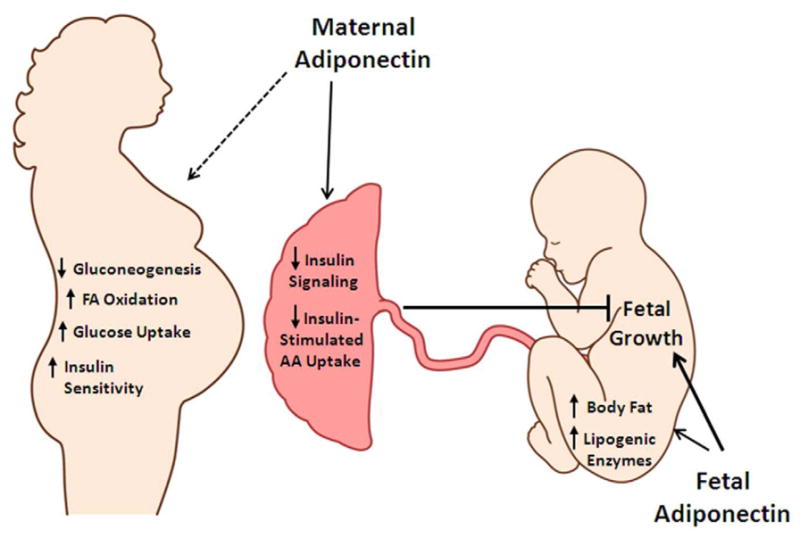Figure 4. Specific roles of adiponectin in maternal, placental and fetal physiology.

Maternal adiponectin is predicted to decrease gluconeogenesis in maternal liver, increase fatty acid oxidation and glucose utilization, and improve insulin sensitivity in liver and skeletal muscle. In the placenta, maternal adiponectin decreases placental insulin-signaling and reduces insulin-stimulated amino acid transport and subsequently decreases fetal growth. Fetal adiponectin is proposed to increase fetal adiposity and growth, possibly via increased lipogenic enzyme expression in the fetal liver. AA, amino acid; FA, fatty acid.
